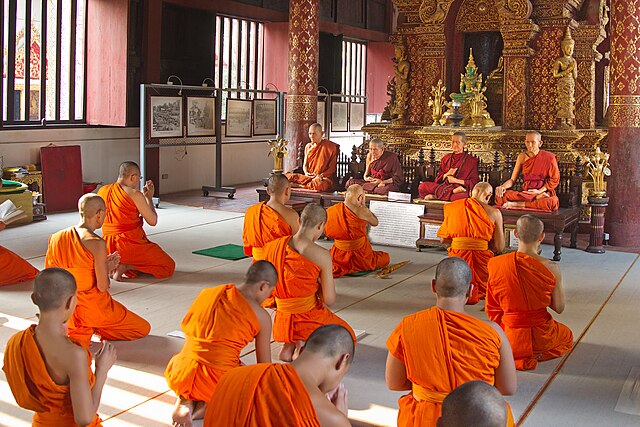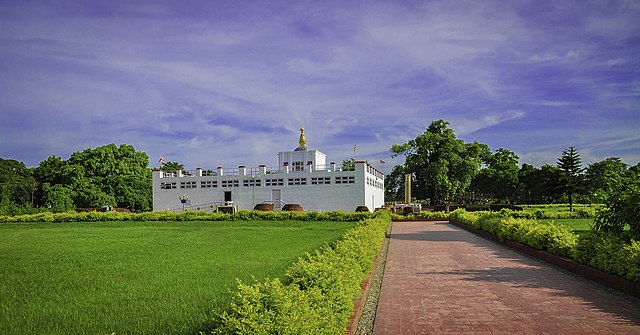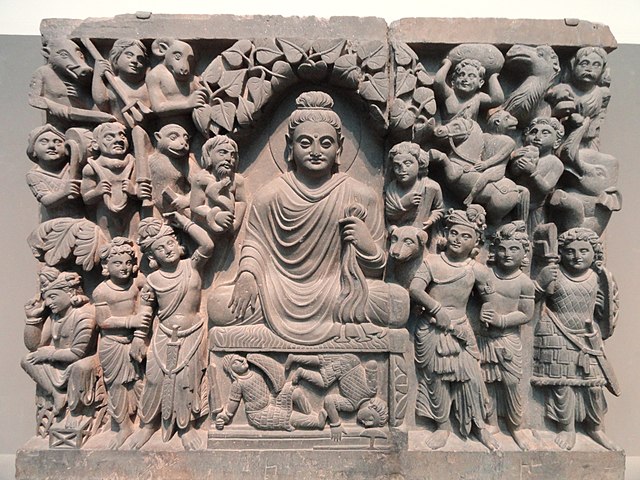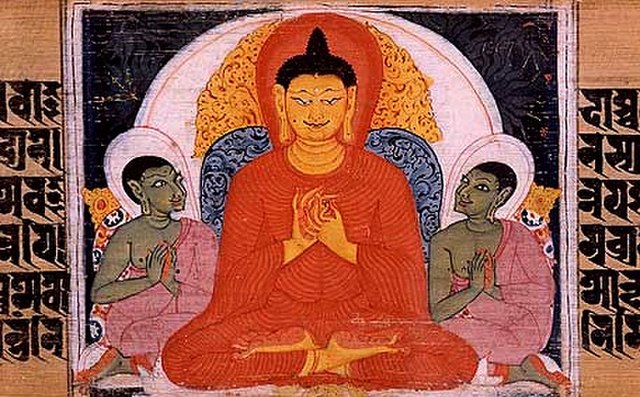Celibacy is the state of voluntarily being unmarried, sexually abstinent, or both, usually for religious reasons. It is often in association with the role of a religious official or devotee. In its narrow sense, the term celibacy is applied only to those for whom the unmarried state is the result of a sacred vow, act of renunciation, or religious conviction. In a wider sense, it is commonly understood to only mean abstinence from sexual activity.
Buddhist monks in Chiang Mai Province, Thailand
Saint Kateri Tekakwitha, an Algonquin-Mohawk Catholic laywoman who took a private vow of perpetual virginity
St. John the Baptist in the Wilderness by Raphael, c. 1517
Saint Macarius and a Cherub from Saint Catherine's Monastery, Sinai, Egypt
Buddhism, also known as Buddha Dharma and Dharmavinaya, is an Indian religion and philosophical tradition based on teachings attributed to the Buddha. It is the world's fourth-largest religion, with over 520 million followers, known as Buddhists, who comprise seven percent of the global population. Buddhism originated in the eastern Gangetic plain as a śramaṇa–movement in the 5th century BCE, and gradually spread throughout much of Asia via the Silk Road.
Mayadevi Temple marking the Buddha's birthplace in Lumbini
Enlightenment of Buddha, Kushan dynasty, late 2nd to early 3rd century CE, Gandhara
The Buddha teaching the Four Noble Truths. Sanskrit manuscript. Nalanda, Bihar, India
Traditional Tibetan Buddhist Thangka depicting the Wheel of Life with its six realms








